Microstructural Characteristics of Cemented Carbide Balls
- Details
- Category: Tungsten Information
- Published on Wednesday, 10 September 2025 17:38
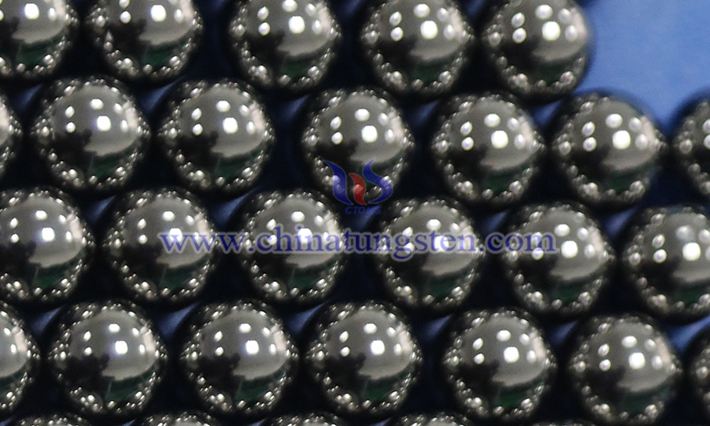
Cemented carbide balls are typically manufactured through a powder metallurgy process using a refractory metal, tungsten carbide (WC), as the hard phase and an iron-group metal (such as cobalt, Co, nickel, etc.) as the binder phase. They are high-performance materials commonly used in bearings, valves, oil drilling balls, and mining tools. Their microstructural characteristics have a decisive influence on mechanical properties, wear resistance, and corrosion resistance. Specific characteristics are as follows:
Chemical Properties of Tungsten Cemented Carbide Balls
- Details
- Category: Tungsten Information
- Published on Wednesday, 10 September 2025 17:36
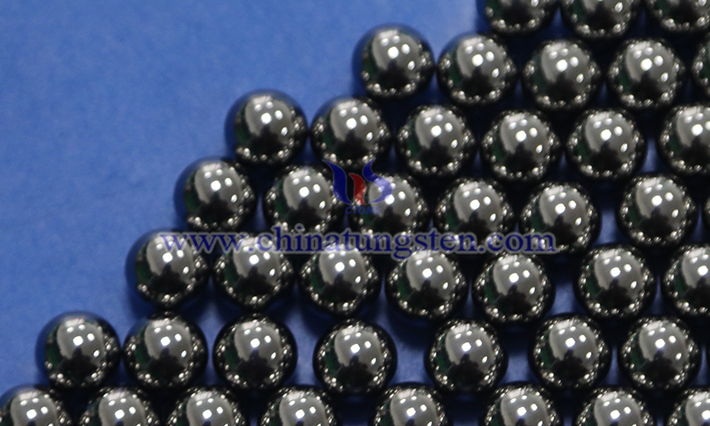
Tungsten cemented carbide balls are primarily manufactured through a powder metallurgy process using tungsten carbide (WC) and a metal binder (such as cobalt (Co) or nickel (Ni). Their chemical properties are primarily determined by these components. The following is an overview of the chemical properties of tungsten cemented carbide balls:
Physical Properties of Tungsten Cemented Carbide Balls
- Details
- Category: Tungsten Information
- Published on Wednesday, 10 September 2025 17:34
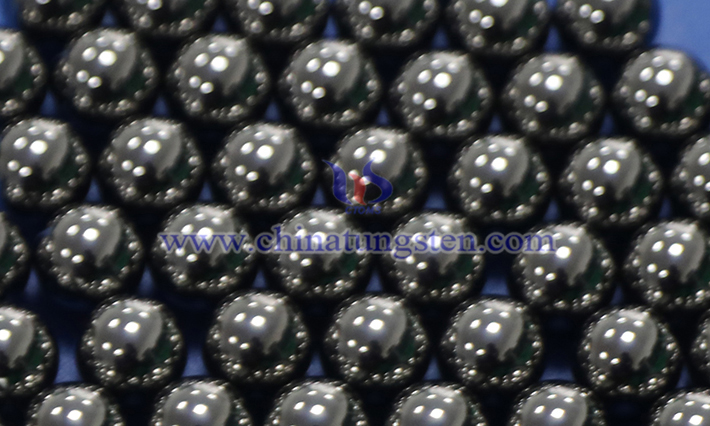
Tungsten cemented carbide balls are typically composed of tungsten carbide (WC) with a metal binder such as cobalt (Co). They possess the following key physical properties:
Physical and Chemical Properties of Tungsten Cemented Carbide Balls
- Details
- Category: Tungsten Information
- Published on Wednesday, 10 September 2025 17:31

Tungsten cemented carbide balls (typically made of tungsten-cobalt alloy or other cemented carbide materials) possess the following key physical and chemical properties, making them suitable for industrial applications, cutting tools, bearings, and other fields:
Materials and Properties of Tungsten Cemented Carbide Balls
- Details
- Category: Tungsten Information
- Published on Wednesday, 10 September 2025 17:29
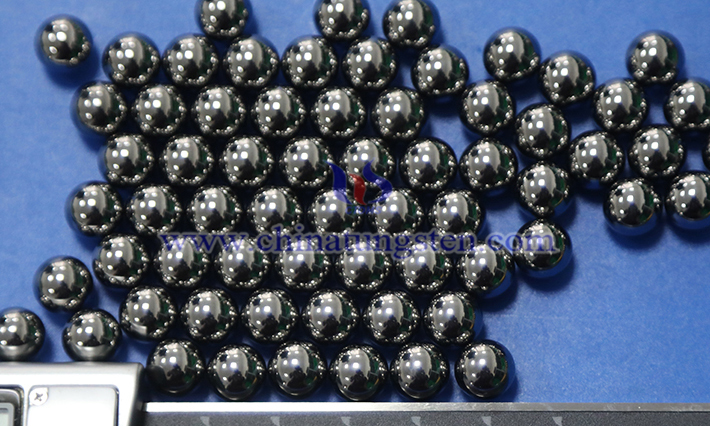
Tungsten cemented carbide balls are primarily made of tungsten carbide (WC) and a binder (such as cobalt (Co) or nickel (Ni)) through a powder metallurgy process. They exhibit high hardness, high wear resistance, corrosion resistance, and good compressive strength. The following is a detailed analysis of their materials and properties:
Characteristics of Tungsten Cemented Carbide Balls
- Details
- Category: Tungsten Information
- Published on Wednesday, 10 September 2025 17:27
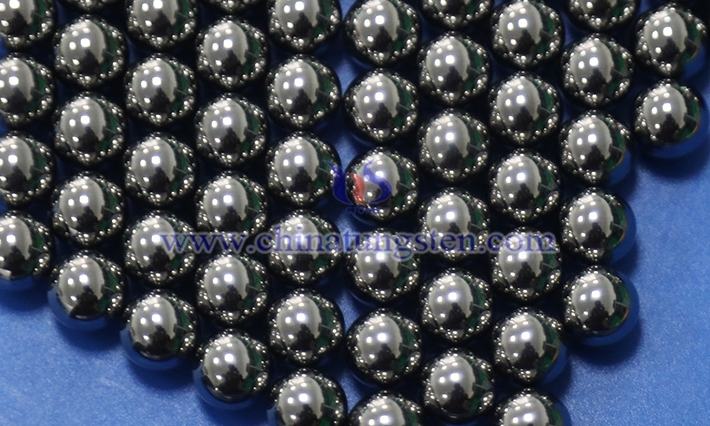
Tungsten cemented carbide balls, due to their outstanding performance, are widely used in industrial applications such as precision bearings, valves, abrasive media, and metering instruments. Their high hardness and wear resistance make them outstanding in harsh environments.
What Are Tungsten Cemented Carbide Balls?
- Details
- Category: Tungsten Information
- Published on Wednesday, 10 September 2025 17:24
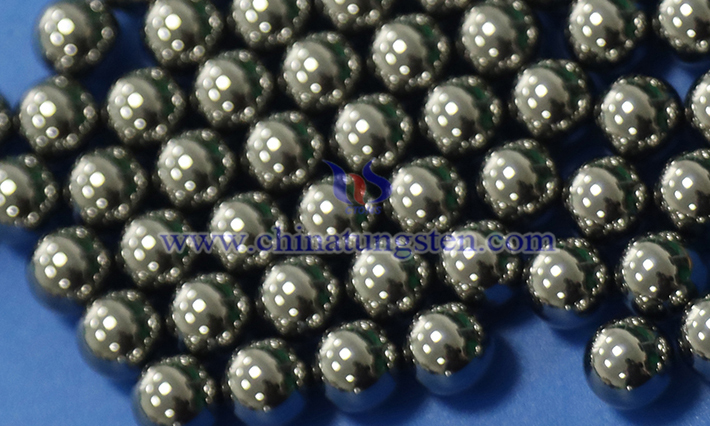
Tungsten cemented carbide balls are spherical components primarily made from tungsten carbide and a metal binder (such as cobalt) using a powder metallurgy process. They exhibit extremely high hardness, wear resistance, and corrosion resistance. Their unique properties have led to their widespread use in industries such as industry, manufacturing, and precision instruments.
Applications of Tungsten Alloy Discs in Target Material Fields
- Details
- Category: Tungsten Information
- Published on Tuesday, 09 September 2025 15:40
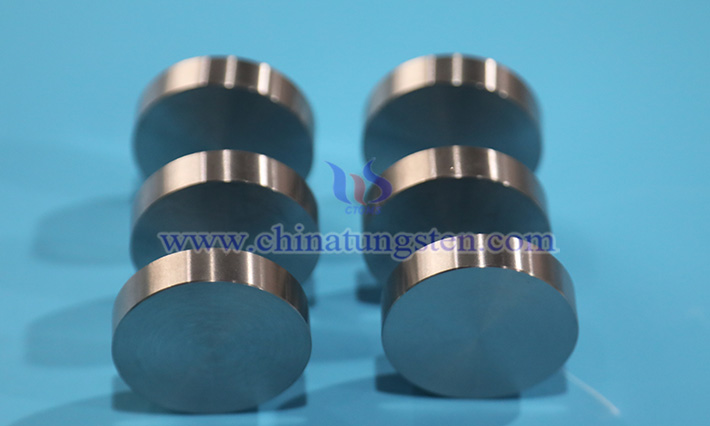
Tungsten alloy discs, with their high density, excellent high-temperature resistance, and corrosion resistance, have wide-ranging applications in the target material field, particularly excelling in advanced manufacturing techniques such as physical vapor deposition (PVD), sputtering coating, and ion beam deposition. As a high-performance target material, tungsten alloy discs play a critical role in industries such as semiconductors, solar cells, display panels, and optical coatings.
What Is Tungsten Alloy?
- Details
- Category: Tungsten Information
- Published on Tuesday, 09 September 2025 15:37
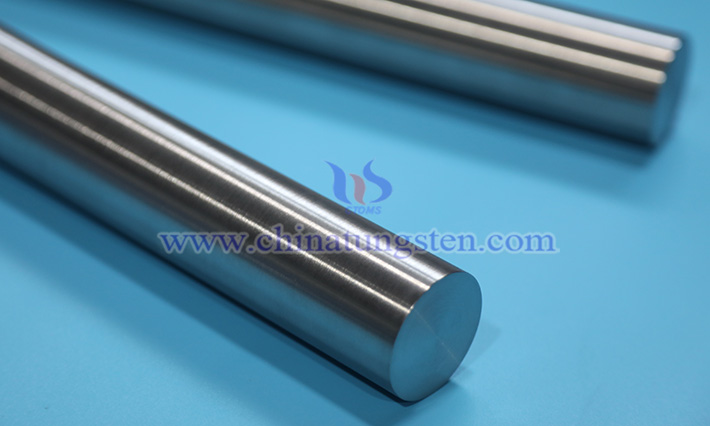
The primary component of tungsten alloy is tungsten (W), typically enhanced with elements such as nickel (Ni), iron (Fe), and copper (Cu) to optimize performance. Tungsten boasts a density of 19.35 g/cm³, significantly higher than common materials like steel (approximately 7.8 g/cm³) or aluminum (approximately 2.7 g/cm³). This high density allows tungsten alloy to provide substantial weight in a smaller volume, meeting the stringent space requirements of counterweight designs.
Applications of Tungsten Alloy Discs in Counterweight Fields
- Details
- Category: Tungsten Information
- Published on Tuesday, 09 September 2025 15:35
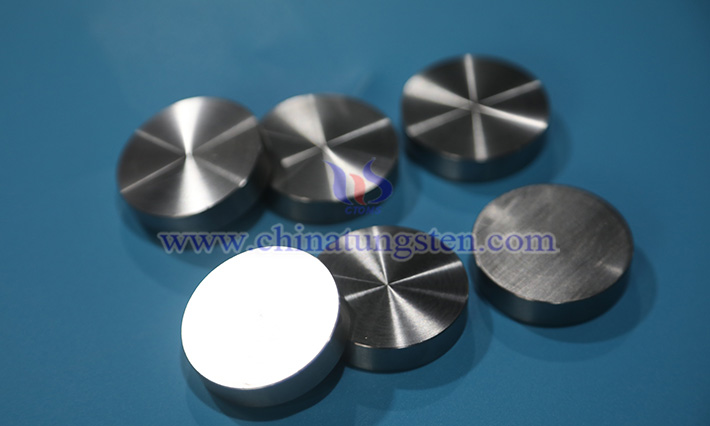
Tungsten alloy discs, owing to their unique physical and chemical properties, are increasingly widely used in counterweight applications, particularly excelling in high-demand scenarios such as aerospace, automotive industry, precision instruments, and sports equipment. With their high density, high strength, corrosion resistance, and excellent processability, tungsten alloys have become the preferred material for counterweights.



 sales@chinatungsten.com
sales@chinatungsten.com